If you want to learn how to start a party rental business, you’ve come to the right place. When my wife and I first decided to start a party rental company in 2011, we had no idea what we were getting into. However, our success over the years has come through trial and error for the most part. We began with 10 tables and 100 chairs in our garage and in 2019, when we sold the company, we had a 10,000 sq. ft. space with thousands of chairs and tables, linens, tents, dance floors, staging… you name it. I realize there are many out there starting out just like we did and so I hope this article can help you avoid some of the pitfalls we experienced in starting our party rental business.
With that said, here is my guide on some of the initial steps you should take before starting any party rental business. Though there is some purpose behind why I’ve listed each point in the order it is shown below, it’s important to realize these are not set in stone. While ALL are necessary, the order in which they occur will likely differ depending on your unique situation.
Important Steps On How To Start A Party Rental Business
Here’s an outline of the steps I layout in greater detail below on starting a party rental business:
- Start With “Why”
- Picking A Business Name
- Competitive Research
- Keyword Research
- Domain and Website
- File Articles of Incorporation
- Obtain Licensing and Permits
- Open a Business Bank Account
- Purchase Products/Equipment Needed to Start Your Business (MVP!!)
- Obtain Liability Insurance for Your Business
- Start Marketing Your Business (Make Some Money!)
- Choose a Business Accounting Software
- Implement, Innovate, Appreciate and Repeat
1. Start With Why
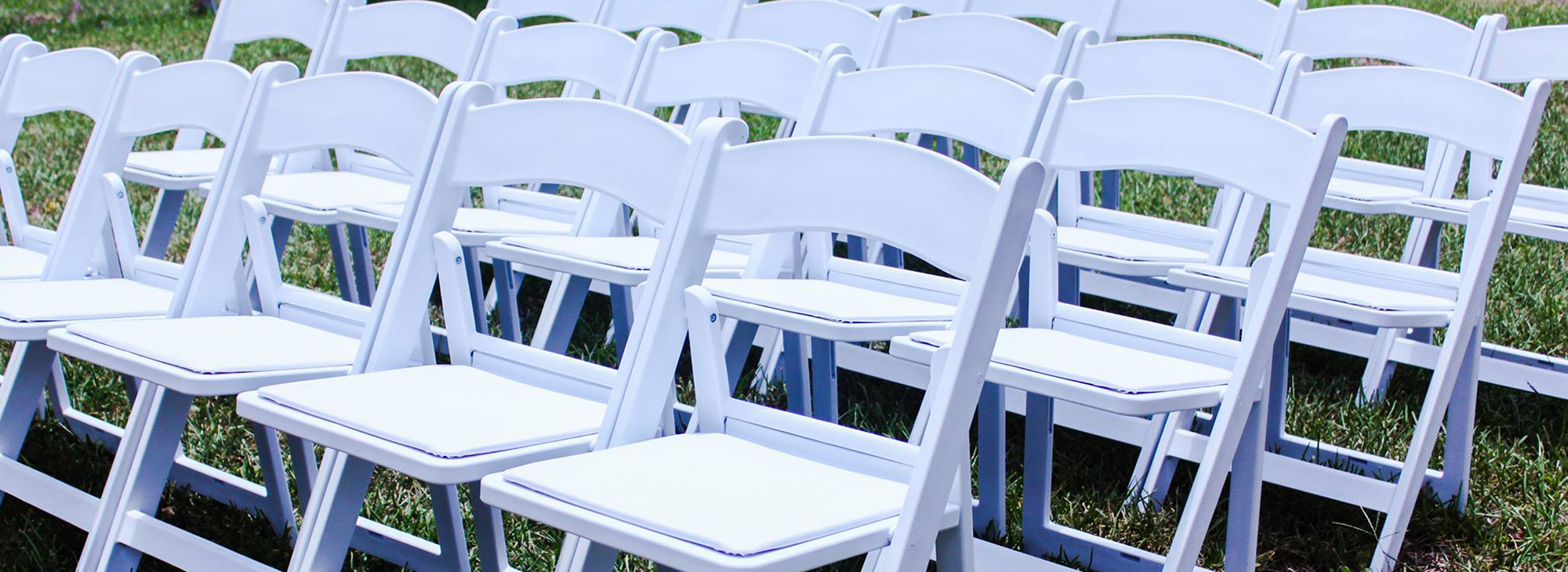
Before starting ANY business, regardless of how long you think you’ve “been meaning to do this” or how ready you think you are, it’s always a good idea to take a step back and ask yourself, “Why am I doing this?” I even suggest taking a night out with a spouse, loved one or close friend that you trust specifically for this purpose. Talk with them about your new venture. If you’re starting a business with a partner, they should definitely be involved in this conversation.
How to Guide the Conversation When Starting A Business
The principle object of this discussion should be around the real purpose behind starting the business. Maybe you’re tired of corporate life and are ready to venture out on your own. You’ve always wanted to “start a business” and you’ve saved up some slush fund and are now ready to take the plunge. Maybe you’ve worked at a job for quite some time now and realize you could take your skills, find your own clients and not have to work under anyone any longer.
What Even Is a Business?
There are a million different reasons why people decide to start a business. However, at the risk of bursting someone’s bubble, I have to provide a little spoiler alert. The truth is, businesses are a means of providing service to others. Since this is the case, if your core values behind the “why” in starting your business don’t center around helping others by providing a better product/service for the customer, it is very likely that the business will not do well in the long run.
You see, starting a business is exciting. It’s something new! There’s so much to learn. So many things to do, people to talk to and processes to create. But, once the excitement of the “new” wears off, the only thing you’re left with is you, your products/services, your people and your customers. If all of these are not happy and in perfect harmony with each other, this whole “start a business” idea can quickly become a nightmare that’s not worth continuing. Without a true and abiding conviction of WHY you started the business in the first place, it will be ever so easy to give up at the first sign of trouble (which WILL COME!).
Now You’re Ready To Start Your Party Rental Business!
With a true sense of “Why,” you’ll be able to fall back on that central purpose when things just don’t seem to be working out. You’ll need it when you’re 6 months in and feel like you haven’t slept in weeks. You’ll need it when your first angry customer calls to chew you out for no apparent reason and you begrudgingly (but not on the outside 🙂 ) refund their money and apologize only because you know it’s the only thing that will keep them from leaving a bad review on Google.
And finally, you’ll need it when you’re 5 years in, things are running smoothly and you start to think about taking your foot off the pedal a bit. Your “Why” will continue to push you to implement new innovations, branch into other service offerings and seek for more people to serve.
2. Picking A Business Name
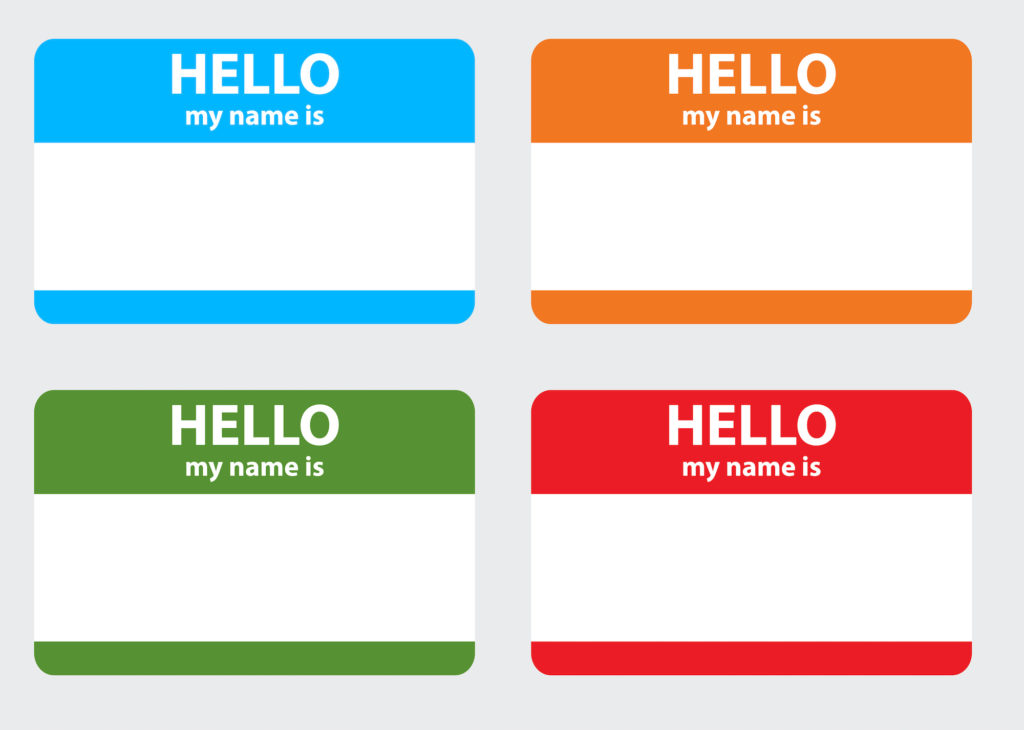
Once you’ve clearly identified your “why” for starting a party rental business, it’s time to pick a name. This is a very important step that cannot be minimized or glossed over. The name of your business needs to reflect your values (your “why”), your service offerings, your personality and appeal to your customer base. I know that may seem daunting, but I can’t stress enough how much this can help your business. Here are a few tips to keep in mind when trying to come up with a name:
- Keep it simple (long names are hard to remember and lack sophistication)
- Brainstorm with a partner, spouse or close friend (they can offer new insights and keep you from selling yourself on something that isn’t going to resonate with your audience)
- Run it by several people your trust (It’s a good idea to go outside of family and friends here as you’re looking for honest feedback… someone who will tell you if your idea sucks)
- Come up with 2-3 that you could live with (this will prevent you from having to start all over in the case the first choice you pick doesn’t pan out. This will be explained further below)
Once you’ve decided on a name, your next step is to check for domain name availability. Go to Godaddy, or your favorite domain name registrar and do a thorough search. Check for alternative spellings, pluralities and different configurations of the words you choose in your name. If it’s available… buy it immediately! More than likely, you’ll find that the EXACT domain is not available. This will be a good indication that your next step is going to be even more crucial.
If your business name is not available as a .com domain, you’ll want to search alternatives (like adding a “co” or “biz” at the end…etc.). Once you’ve nailed down the domain (this could even be done simultaneously or before searching for domain names), it’s time to check to see if anyone has a trademark on the name you’ve chosen.
Do I Need Legal Advice?
I highly suggest talking with a patent lawyer for this as the research can be quite tedious. As a “do it yourself” approach to this, you can go to the US Patent and Trademark Office’s website and begin your research there. Be sure also to check through your particular state’s trademark repository to ensure you are not infringing on anyone in either space. Keep in mind that the laws around trademarks can be tricky. Just because someone has the same name as you doesn’t mean you will be infringing upon their trademark. The types of services being rendered, location of the business and other factors will determine whether you can/should move forward with your name.
Now that you’ve chosen a good name for your party rental business, let’s take a look at the competition!
3. Competitive Research

As for me, this is where things start to get fun! Mark Cuban explains in his book “How to Win at the Sport of Business” that all business really is just a game played between multiple competitors. Who doesn’t love a good competitive game?!
Just like all successful sports teams, you’ll need to size up your competition if you plan on competing with them. You need to know their strengths, weaknesses, who they appeal to, who they might be leaving out and what their strategies are. Basic price comparisons are a given, but more important is “how” your competition goes about their work.
Sizing Up Your Party Rental Competition
When you call in as a “customer” to your competition, how do they answer the phone? What do they push in terms of products? How attentive to your needs are they? How busy do they seem? Are they so booked that they can’t even get you on the schedule for a couple days/weeks…even months!? What is their sales pitch? How quickly do they respond to emails?
Pay close attention to all these things as you scout out your competition. Glean as much information as you possibly can from as many competitors as you possibly can. Take good notes and refer back to them often as you start to put together your business plan.
4. Keyword Research
Similar to competitive research, you also need to research the verbiage that your customers and competition use to describe the services you’ll be offering. This is important in terms of sounding like you know what you’re talking about, as well as (and even more importantly) what keywords and search terms you’re going to optimize your website and Ad campaigns around. We’re talking about SEO and Pay Per Click Advertising on Google.
Though it may make sense for you to hire a professional in this arena, keyword research can actually be performed on your own with the right tools and a little time/effort. There are a ton of keyword research tools out there. I’d recommend looking into as many as you can and comparing results from several. I’m going to briefly outline how you can use Google’s Keyword Planner tool in Google Ads to perform some basic keyword research for your target audience.
- Visit ads.google.com and create an account (if you have an existing gmail address you can use the same login)
- Once you login, Google is going to try and walk you through setting up a Google Ads account with them. Click any of the three options provided for “what’s your main advertising goal”
- Add your business name in the next step
- Enter your website address (or any website address if you don’t already have one)
- Click next and go through the process of creating an ad (don’t worry, you don’t have to start running ads or pay anything to Google)
- You will need to add a card number to the account in order to activate it
- Once you’ve gone through Google’s Process and you’re in your dashboard, be sure that any campaign that they made you create is “paused” to ensure you’re not running ads.
- Click on “Tools and Settings” and then under Planning click on “Keyword Planner”
- Go to “Discover New Keywords” and enter in a few of the products/services that you plan on providing (You can also enter any keywords you THINK your target audience might be searching in order to find your products/services) Some ideas here could be: [party rentals near me], [bounce house rentals in “location name”], [tent rentals near “location name”]…etc.
- Click “get results” and view the results that Google shows
The Google Keyword Planner tool is super powerful and can give you some great insight as to how many searches per month on average your desired keywords are being queried. Use this information to inform how you write content on the main pages of your website as well as what categories you select when setting up your Google My Business listing.
You can also save those keywords into Ad Groups for use later if you plan on running a Google PPC campaign in order to jumpstart the lead generation process for your new party rental business.
5. Domain and Website
Now that you’ve done the research on what keywords people are using to search for your services, it’s time to build your website. You can choose to hire a professional, or your can use any number of resources that are available online to launch your own website. I personally prefer to use WordPress CMS hosted on a shared or dedicated host like BlueHost, Hostgator or even a managed cloud hosting platform like Cloudways.
Most hosting platforms will have a quick launch of WordPress already built into their platform which makes it easy to get started building your website. Otherwise, you can go to WordPress.org and download it for yourself and upload to your server to get started. If you decide to do this route, I recommend following this guide to help you through the setup.
Once WordPress is installed, pick a theme to start with and then start editing the content and media to fit your business. Keep in mind the keyword research you performed in the previous step when writing any content (especially on the home page and main internal pages of your website). Be careful not to “keyword stuff” your content as Google and other search engines look down on this strategy and it can negatively impact your ability to rank. Instead, focus on writing for your target audience and making sure your keywords are logically placed and relevant to the context.
At Adelie, we can also help you integrate your WordPress or Shopify website with your party rental software for real-time inventory tracking.
6. File Articles of Incorporation
Each state handles business filings slightly differently so you’ll want to check with your local government to see how your state handles things. Typically, you’ll register your business with the state through one of the following:
- Secretary of State’s Office
- A Business Bureau
- A Business Agency
If you’re planning on being a “sole proprietor” then you oftentimes will not even need to register your business. This simply means that you’ll file your taxes at the end of the year using your own social security number as opposed to a registered EIN. There are certain liability benefits in registering your business so you’ll want to consider how you want to go about this ahead of time.
As far as registering with federal agencies, most party rental businesses will not need to do this other than getting an EIN (Employer Identification Number) which oftentimes will occur simultaneously when you register your business with the state. An area where you would work with the federal agency is when you want to file for trademark protection or tax exempt status (if you were planning on starting a non-profit).
Where To Look For Information In My Area?
A good resource for details on registering your business is the Small Business Administration’s website. Use their state lookup tool at the link provided to see how your own state handles business filings and go from there. You will also want to check with local city/county regulations when it comes to transaction privilege tax certificates or TPT.
Depending on the product/service you’re selling, you may be required to collect city/state sales tax and file/pay this with the city and state each month or quarter. I highly recommend researching your particular jurisdiction and industry carefully so as to not get too far down the road only to find out you were supposed to be collecting sales tax and you end up getting stuck with a sizable bill to cover.
7. Obtain Business Licensing and Permits
Most party rental businesses will not need to engage in this step. However, it’s a good idea to check with federal and local agencies to make sure your particular state or region doesn’t require any special permitting or licensing before you operate.
To find out if you need a particular license or permit for your party rental company, visit the sba.gov website using the provided link. This page provides a list of business activities that require federal licenses.
For state level requirements on licensing and permits, visit your particular state’s website. Since some business activities require you to have a certain level of experience and length of time working in the industry (ie. larger tent construction, staging…etc.), it’s best to do this research well in advance if you are planning on starting a party rental business that includes any special skilled set up requirements. You also may need to pass certain certification exams in your area of expertise in order to obtain proper licensing.
8. Open a Business Bank Account

Money money money! Since you’re going to be raking it in soon, you’ll want to make sure you have a place to put it all! Business banking is slightly different than personal banking and the products can vary based on your particular preference. However, for the most part it’s pretty similar.
You will need an EIN (employer identification number) in order to apply for a business bank account (checking or savings). So, you’ll want to make sure you complete step #6 before taking a trip to your local Wells Fargo branch.
For the most part, this is a fairly straightforward process. You’ll want to have all members of your ownership team present to sign paperwork for the accounts. Conversely, there are a lot of online only banking options that are popping up all the time that streamline the process even further and allow you to do all of this over the internet. Banks like Capital One, Axos and PNC are all great online banking options for small businesses.
9. Purchase Products/Equipment Needed to Start Your Party Rental Business (MVP!!)
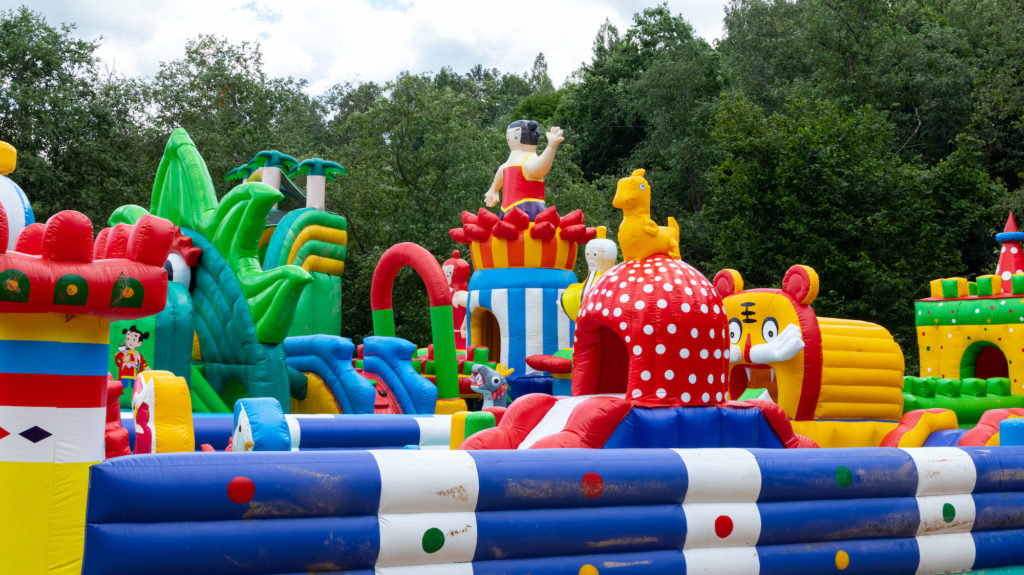
Starting a party rental business is going to require that you invest at least SOME amount of money into the tangible assets you plan on renting in order to get started. For my rental company, I started with about $3,000 and purchased 10 tables, 100 chairs and some linens. From there, I re-invested profits to purchase new inventory and grow.
That said, I really suggest you be extra careful in this department. It is easy to justify spending more than you need in the name of “starting your party rental business.” This can and will lead you down a road of stress and cash flow problems as revenues for start up small businesses usually start very small and grow gradually.
Don’t Break The Bank To Start A Party Rental Company!
I always suggest spending as little as humanly possible in the beginning. The truth is, at this point, you don’t even know if this is going to work out or not. Though you’re going to throw everything you have at it and do everything within your power to make this party rental business of yours succeed, it’s still an unknown until you prove you can convince someone to pay you actual money for what you have to offer.
So, with that said, here are my top priorities when it comes to initial investment in your start up party rental business:
- MVP!! (spend ONLY what it takes to produce a minimum viable product until you know you can make money doing this…which means you ACTUALLY get money from someone OTHER than family and friends!)
- Start with “lower quality” cheaper options but ONLY in the beginning! (This will buy you some time to prove your process and get the ball rolling with minimal upfront costs. However, some companies stay cheap forever and they pay for it in the long run. I recommend using lower cost items only in the very beginning. As your small business begins to grow and you’ve proven your model, start putting money aside for higher end equipment, better software, newer more reliable vehicles…etc. The headache you can save by having good quality equipment/product/software will more than pay for itself in the long run)
- Research Research Research (scour the internet and your contacts for vendors you can work with who will not only offer you great deals, but also have a history of reliability and ethics. I learned the hard way that low prices that are seemingly too good to be true… usually are just that! My wife and I got burned to the tune of $3k during our first year of our event rental business because we trusted a shady reseller of tables/chairs to deliver on a time crunch. We had used him before for smaller orders, but for us back then $3k was a LOT of money and the business we needed the equipment for was even more important than the money as it could have proven to be a large continuous account. Needless to say our friend didn’t come through and we were left scrambling at the last minute to try and make up for it.)
- Pay Cash If You Can… For EVERYTHING (I’d be lying if I didn’t call myself a Dave Ramsey fan. My wife and I have been on his plan since we first got married and it has made all the difference. We’ve been financially secure for nearly a decade and we’ve utilized the skills we learned from Dave’s book and radio show in our businesses as well. I recommend saving up an initial investment for your business. You’ll need at least 3-6 months worth of start up expenses saved up. This will give you enough time to prove the model. Stick to the budget that you set with that initial sum, and then let the business pay for itself after that. If it’s unable to sustain itself after 6 months… it may be time to consider implementing your backup plan.)
There are definitely exceptions to these rules that I’ve listed here. Of course there are companies that would never succeed without initial fundraising rounds and tremendous amounts of upfront capital. However, I believe that for the most part, when we are talking about starting a local party rental business, these rules are proven and will provide you the best chance of success.
10. Obtain Liability Insurance for Your Party Rental Business
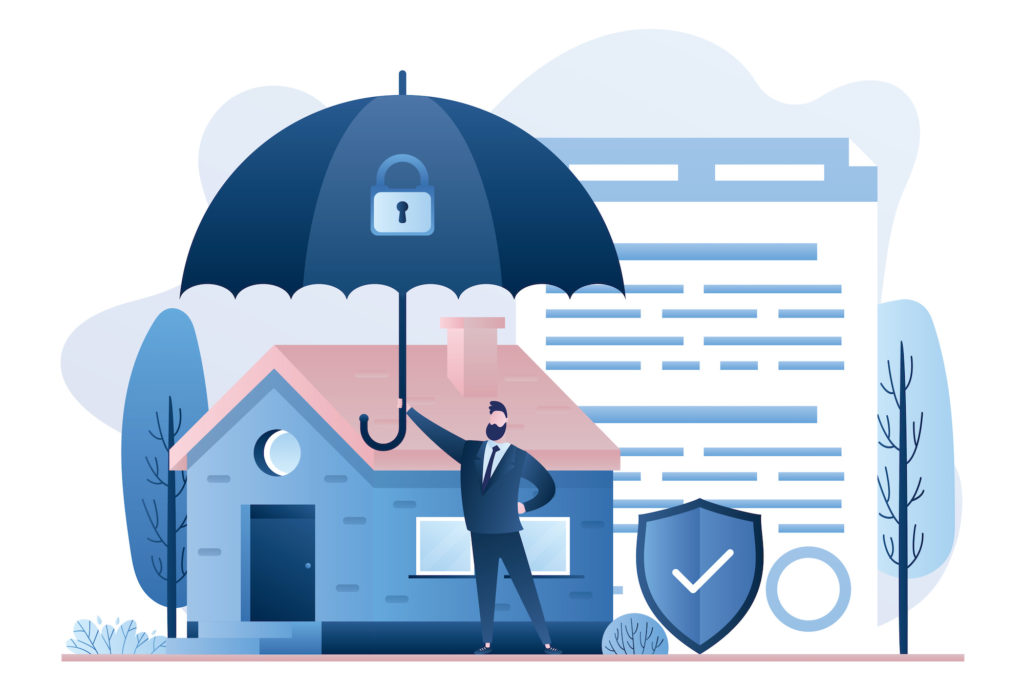
I fee like insurance is one of those things that people love to hate. I can’t say I’m not the same. I do recognize it’s importance though, and I am a major advocate for doing things right and not cutting corners when it comes to starting and running a party rental business.
Liability and workers compensation insurance is one of those areas that I feel a lot of sole proprietors or first time entrepreneurs skimp on or completely overlook in the beginning. This is something that can come back to bite you really quickly if you’re not careful, ESPECIALLY in party rentals. One incident/accident that turns into a lawsuit can make or break a small company especially in the beginning. It’s best not to tempt fate and secure liability insurance before starting so as to avoid having to shut down prematurely.
QuickBooks Has A Good Liability Insurance Tool
So, where do we start. QuickBooks itself offers a pretty decent program from within their online accounting dashboard. One area I feel they do well with is workers compensation as those premiums are usually based on your expected payroll costs for the year. When you’re first starting out, it’s difficult to assess this. QuickBooks uses your current payroll amounts to automatically come up with quotes that are appropriate for your output.
For general liability, I’ve enjoyed working with Farm Bureau and I’ve even had others give me quotes later down the road that said I was already getting probably the best that they would be able to offer. You do have to pay an annual membership fee with Farm Bureau but the $50 per year, I think, is more than made up for in benefits.
An Insurance Broker Can Help With Party Rental Insurance
It’s also never a bad idea to enlist the services of an actual insurance broker. These guys will be able to search the entire insurance market and pick the lowest/best deal for your situation. They get paid on the backend so it’s not like it’s costing you anymore to use them. This is a good option if you’re just not into the research game and want to make sure you’re getting good coverage at the best available price.
11. Start Marketing Your Rental Company (Let's Make Some Money!!)

Now we’re talking! Without a doubt this is my favorite part of starting any business. While I do appreciate all the other aspects, marketing is close to my heart. I’ve been working in internet marketing since 2008 and am continually fascinated with how it changes the landscape of business (especially small business) even to this day.
Internet Marketing For Party Rentals
Just because you don’t have experience in internet marketing, doesn’t mean you can’t be successful in driving new leads through this medium. I’ll be writing several posts on this topic so I encourage you to read through some of those if you’re at all interested in trying to spin up your own WordPress site for your small business, optimize it for SEO and begin running Google Ads or social media ads to drive traffic to your website and ultimately new customers to your party rental business.
Other Ways To Market Your Party Rental Business
While I believe most fervently in internet and digital based marketing. Other forms should not be overlooked here. One of my mentors asked me a hypothetical question once. He said, “If I run three different marketing campaigns and one gives me an ROI of 50%, the second gives me an ROI of 15% and the third ends up yielding only 1%, which one do you think I continue doing?” his answer, “ALL OF THEM!!” If you’re turning a positive ROI, there’s no reason to not pursue that platform.
While you could argue about whether the above scenario makes sense in every situation, his message is still clear. Don’t be afraid of spending money for marketing. This is one of the areas where a little can go a long way in helping jump start and maintain revenue for your new party rental business.
With that said, here are some initial options you may consider for marketing your new business. I’ve included some links along with these to help speed up the research for you if you’re interested.
- Website: Nothing fancy, a 5 page brochure site built on something free like WordPress or a paid e-commerce platform like Shopify will usually suffice
- Google My Business Listing: Especially for a local party rental business, this is an absolute must! Be sure to fill out as much information as possible, post often and choose categories that best describe the services you offer. Also, ask every customer you work with for a positive review to get you jump started in that space.
- Social Media Profiles: Get your business set up with a Facebook Page, Twitter Profile, Instagram, Pinterest and LinkedIn. You may decide that you don’t want to be super active on these right out of the gate but it’s best to get them set up and claim your custom url from the onset. Facebook and Instagram can be great paid advertising platforms for starting out, especially for direct to consumer sales. LinkedIn is a great paid option for B2B sales. Check out LinkedIn’s Pro Finder platform if you’re looking to land commercial clients for your party rental company.
- Start Gathering Emails: Email marketing is still alive and well. Set up a lead generation page on your website, Facebook or even through MailChimp to start capturing email addresses of potential customers. Then, get to work writing emails for specific sales funnels to start marketing your services to these individuals/businesses.
- Business Cards/Flyers: VistaPrint is the cheapest and easiest. If you’re looking to design a good party rentals business card template, Canva is a great place to get started. You don’t need to be fancy here. Just throw together a quick design using one of their templates. Be sure your name is easy to read/find and there’s something on there that says what you do. Get a pack of 250 or so and start handing them out like they’re going out of style. Seriously this works. I recently started a mobile auto-detailing company with a partner. All we did the first 3 months was put business cards on every nice car we saw (or ones we thought really needed some attention). Within a couple month’s we had completely booked out a full detail van for a 40 hour work week.
- Mailers: Believe it or not, this actually still works even in the digital age. Depending on your business and the area/demographic you want to target, snail mail can be a highly effective form of marketing. Be careful in choosing a company to work with. Postage and materials can get really expensive really fast. The USPS has a pretty decent Advertise with mail program. However, if you’re new to mailers, you may want to hire a professional company as they’ll be able to help with the design work, strategic placement…etc.
- Networking/Word of Mouth: Sometimes, there’s no substitute for simply talking about your new party rental business with everyone you know. Join meetup groups and networking orgs in your area. Take the approach of asking yourself, “how can I help this person I’m speaking with?” Whether it means selling something to them or not, simply help people find solutions to the problems they have and they’ll remember you for it. The next time they or someone they know needs something you offer, your name will get past along and you’ll be reaping the rewards for your service to others. The old adage really is true. What goes around does in fact come around.
- Vehicle Wraps: This is a must for party and event rental companies. Vehicle wraps are crucial for success. As soon as you can afford to do so, get your vehicles professionally wrapped with your name, logo and business phone number and website. Be sure to use fonts and letter sizes that are easy to read from far away. A Passerby shouldn’t have to look at your vehicle for longer than 1 second to know what you do and what your name is. If possible, use a call tracking number on your vehicle wraps so you can measure the effectiveness over time of your marketing dollars. This goes for all of your advertising efforts. I highly recommend CallRail for call tracking. It’s easy to set up and is super robust in what it can do with call tracking.
- Sponsor a Local Team: There will be endless opportunities to do things like this. In all honesty, they don’t usually yield the best immediate results. However, if you do decide to do something like this, try insisting that whoever you sponsor offers you a link from their website back to your website. This will serve not only as advertising to their customers on their site, but will help boost your SEO and domain authority. This is internet marketing talk for, “it will help you rank better in search engines and drive relevant traffic/customers to your website.” The long term benefits of these types of links can be priceless.
I could write for days about the endless marketing opportunities that are out there. I hope this list gives you a good starting point. I’m confident that if you follow these mediums when first starting out, you will be in a great position to profit in short affair with your new business.
12. Choose A Business Accounting Software and Rental Software
Keeping clean books is one of my pet peeves when it comes to small business. Without diligent bookkeeping, there really is no way of knowing how healthy your business is. It’s also crucial in understanding what areas of your business are doing well and what areas are in need of improvement.
Going into a new business with the mindset of keeping clean books from the onset, is much easier than realizing 2, 3 or 10 years down the road that you need an overhaul of your books. If you ever are in need of making a large purchase, signing a lease on a brick and mortar location, or even selling your business, you simply cannot get by without having clear documentation of income and expenses.
Where To Start With Accounting And Rental Software?
To someone who has never had to keep books before, it may seem a little daunting. You may not even know where to begin. Fortunately there are a myriad of small business accounting software options out there that make it fairly straight forward and with a little time and effort, you’ll be a pro before you know it.
Here’s a list of small business software options that I’ve either used or know of friends who have used before. I’ve also included a short ditty on what I feel are there pros and cons.
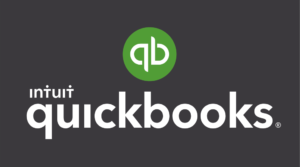 QuickBooks: This is my go to. It’s also what our rental software is built around. I’ve used QuickBooks for every business I’ve ever run at some point. As the best selling small business accounting software on the market, Intuit has really done well with providing an affordable accounting software that is robust enough to help a small business grow from inception through to a multi-milllion dollar company. One of the things I like the most about QuickBooks is that, at least for the online version, there are thousands of 3rd party software and add-ons that can integrate directly with your QuickBooks Company file. Add to that list the ability to connect with Zapier, and you can literally automate almost any process from an accounting perspective. As far as cons, I don’t have much to say here other than sometimes the limitations of different versions force you to continually upgrade or change versions. For businesses that do a lot of one off transactions with 30-100 customers per day, you can start to run out of your allotted customer list really quickly especially if you’re using the desktop versions of QuickBooks.
QuickBooks: This is my go to. It’s also what our rental software is built around. I’ve used QuickBooks for every business I’ve ever run at some point. As the best selling small business accounting software on the market, Intuit has really done well with providing an affordable accounting software that is robust enough to help a small business grow from inception through to a multi-milllion dollar company. One of the things I like the most about QuickBooks is that, at least for the online version, there are thousands of 3rd party software and add-ons that can integrate directly with your QuickBooks Company file. Add to that list the ability to connect with Zapier, and you can literally automate almost any process from an accounting perspective. As far as cons, I don’t have much to say here other than sometimes the limitations of different versions force you to continually upgrade or change versions. For businesses that do a lot of one off transactions with 30-100 customers per day, you can start to run out of your allotted customer list really quickly especially if you’re using the desktop versions of QuickBooks.- Adelie Logistics Rental Software: Since this is my software, I’m going to be biased here of course. That said, let me take a minute to explain why I feel our approach to rental software stands out compared to the competition. Our uniqueness is in our integration with QuickBooks accounting as well as the two major players in e-commerce websites (WooCommerce and Shopify). My experience with other rental software is that, though they say they integrate with QuickBooks, the integration is not intuitive and virtually every time I’ve tried to sync, the data ends up getting scrambled in QuickBooks, causing more problems for my accountant and more work for him to be able to get the books cleaned up. Most of the time I’ve felt like it would have been better to manually enter the transactions as opposed to trying to clean up the books after a QB sync with other rental software. Our approach is different in that our mapping with QB is one way, meaning the data comes from QuickBooks and flows through to our rental software. This ensures that your books are never tampered with and your data is always in sync. For a demo of exactly how our software works, click here!
12. Implement, Innovate, Appreciate and Repeat

If you’ve made it this far, you’ve proven you’re one of the few who are willing to put in the work it’s going to take to build a successful party rental business. At the end of the day, success in business comes from hard work, laser focus on clear and defined goals and a winning attitude. You will get knocked down. It’s what you do after you get knocked down that will determine whether your business will eventually fizzle out or progress to the point of fulfilling its (your) ultimate goals.
Now that you’ve got the basics in place, it’s time to put your head down, grind out each and every day with gazelle-like intensity and laser focus and do everything in your power to not get too discouraged when things don’t end up going your way. As you struggle to grow your party rental business, here’s a few hints to keep in mind that I’ve learned throughout my journey of small business:
- Write Down Your Successes: When you find something that works, write down exactly what you did in order to get that result. Keep a running manual of these processes and eventually break them up into different departments of your business. You can use these processes for training future employees. They can also serve to be of great benefit if you ever decide to expand or even franchise your party rental business. Which brings me to my next point.
- Build Your Business as if You’re Going to Eventually Sell or Franchise: Even if you never have any intention of selling or franchising your business, by setting it up in this manner, you’ll provide yourself the best opportunity for success. A business that is built to sell or franchise, is organized, has clearly defined processes, great relationships with reliable vendors and nails their marketing. To learn more on how to do this, I highly recommend the book “Built to Sell” by John Warrillow. In his book, John discusses the benefits to you the owner of building your business as if you’re going to sell it within the next 3-5 years. Among these is the ability to “manage” your business without having it manage you.
- Constantly Look For Ways to Improve In EVERY Area: Each day you should ask yourself, what area of my business could use improvement? Where is there an opportunity to better serve my customers? How can I improve myself and my staff? Are there any tools or software I can use to improve efficiency in my party rental company? By doing this, you’ll be able to come up with improvements and innovations that will gradually improve the quality of your people, products and processes.
- Hold Weekly Staff Meetings: Even if it’s just you and your partner, make it a point to hold regularly scheduled meetings to discuss each area of the business. In these meetings, have an agenda and document the discussions. Talk about everything! Let the financial records dictate which areas you spend the bulk of your time on. Because you’re keeping your books up to date and clean, you’ll be able to tell at a glance where you’re lacking and what you can do to improve. Don’t forget to also use these meetings to boost moral and reward good performance. People love being recognized. They love it even more when they are recognized in front of their peers (this isn’t true for everyone of course so be sure to be sensitive to the personality types on your team).
- Constantly Educate Yourself: Humility really is one of the best attributes when it comes to running a business. By keeping your mind open to new ideas from mentors, good books, industry experts and especially your team, you’ll be able to innovate within your business like no one else. I recommend setting aside 10% of your time to industry education. Put it on the calendar so you know there is a set amount of time each week that you’re locking yourself off for this purpose. I find that unless you actually block out the time, there will always be something that is “more important” in the moment.
And there you have it! I hope this outline serves useful as you set out to start your own party rental business. Please give me a shout on areas you think I’ve missed or not expounded on enough. I look forward to hearing your success stories!


